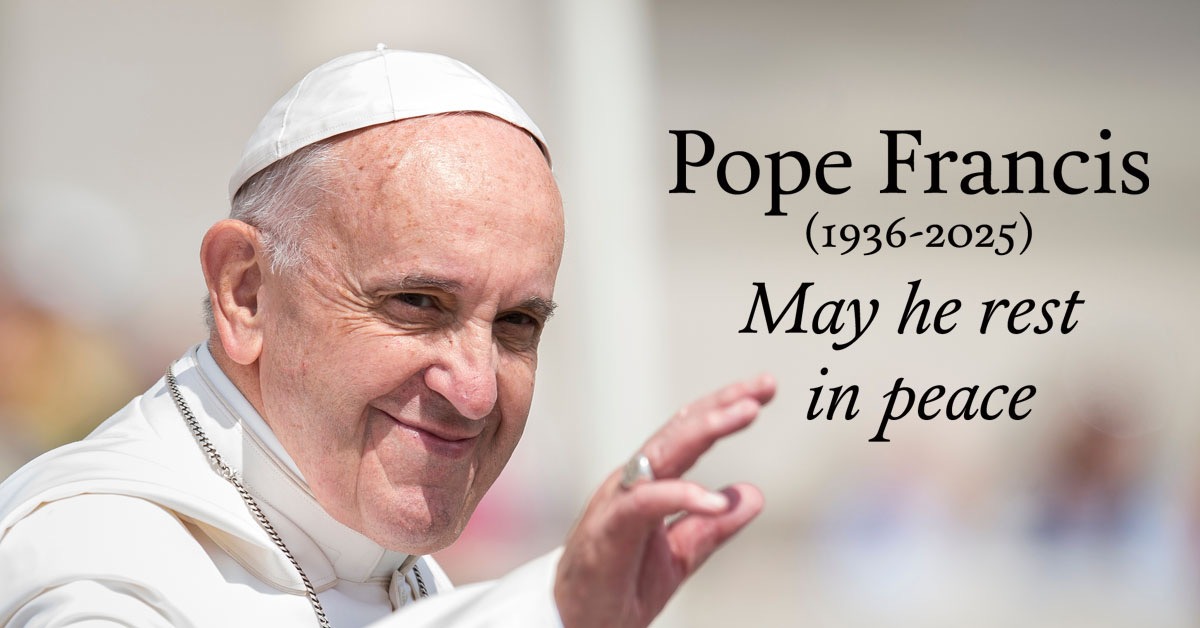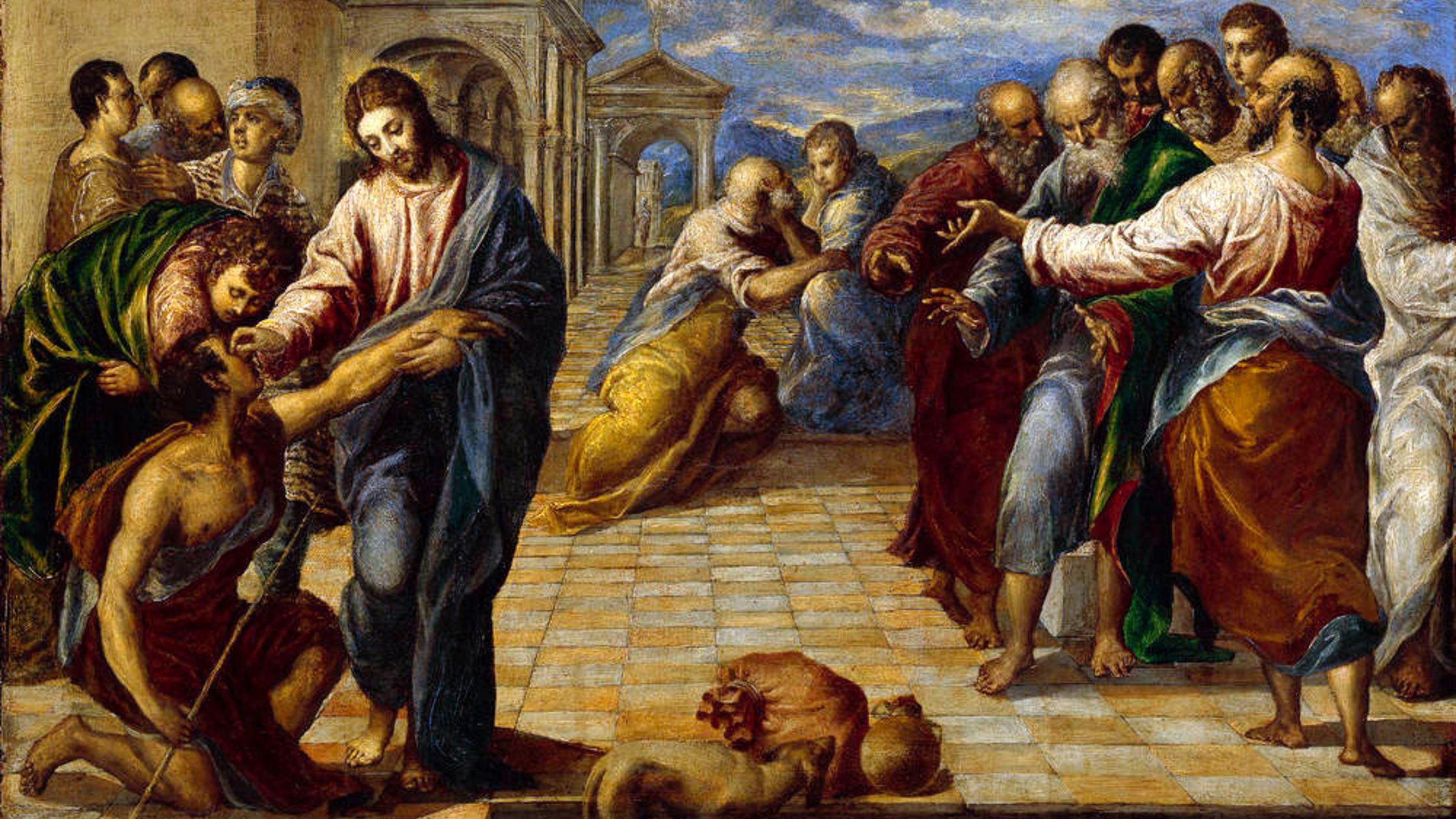With the light of faith he who was blind discovers his new identity. He is no longer a beggar marginalised by the community; he is no longer a slave to blindness and prejudice. His path of enlightenment is a metaphor for the path of liberation from sin to which we are called. Sin is like a dark veil that covers our face and prevents us from clearly seeing ourselves and the world; the Lord’s forgiveness takes away this blanket of shadow and darkness and gives us new light. The healed blind man, who now sees both with the eyes of the body and with those of the soul, is the image of every baptised person, who immersed in grace has been pulled out of the darkness and placed in the light of faith. But it is not enough to receive the light, one must become light. Each one of us is called to receive the divine light in order to manifest it with our whole life.
– Pope Francis
Collect for the Fourth Sunday of Lent
O God, who through your Word reconcile the human race to yourself in a wonderful way, grant, we pray, that with prompt devotion and eager faith the Christian people may hasten toward the solemn celebrations to come. Through our Lord Jesus Christ, your Son, who lives and reigns with you in the unity of the Holy Spirit, God, for ever and ever.
Collecta
Deus, qui per Verbum tuum humani generis reconciliationem mirabiliter operaris, præsta, quæsumus, ut populus christianus prompta devotione et alacri fide ad ventura sollemnia valeat festinare. Per Dominum nostrum Iesum Christum Filium tuum, qui tecum vivit et regnat in unitate Spiritus Sancti, Deus, per omnia sæcula sæculorum.
Today’s Gospel: John 9:1-41
Fourth Week of Lent Reflection
Written by Carl E. Olson in Praying the Our Father in Lent
Themes: Light, Darkness, Blindness, Sight, Signs, Life, Death, Healing, Judgement, Resurrection
From the fourth Sunday of Lent until the end of the Lenten season, nearly all of the Gospel readings for each day are from the Gospel of John. The fourth Gospel has several great themes that are unique to it, including that of light and darkness, which is set forth in the prologue (Jn 1:1- 18). “What came to be through him was life,” the Apostle John wrote, “and this life was the light of the human race; the light shines in the darkness, and the darkness has not overcome it” (Jn 1:3b-5). This contrast is certainly evident in the Gospel reading for Cycle A, the account of the man born blind. The man, who was blind from birth, knows very little until he encounters the healing Saviour and is cured of both physical and spiritual blindness.
“This blind man,” commented St Augustine on this story, “is the human race.” Every one of us is born into spiritual blindness, recipients of the original sin and the severed communion between God and man going back to Adam. Each of us, like the blind man, is unable to heal ourselves; desiring to see, we stumble about in darkness and misery. We are in need of Christ and his light, which comes through his word and the sacrament of baptism. Lent is a good time to offer thanks for the gift of spiritual sight, and to go to Confession to confess any sins, mortal or venial, that have either destroyed or damaged the life of grace.
In the account of Nicodemus visiting Jesus by night (Jn 3:14-21), read in Cycle B, Jesus states that “everyone who does evil hates the light and does not come to the light lest his deeds should be exposed. But he who does what is true comes to the light, that it may be clearly seen that his deeds have been wrought in God.” Entering the light of God – that is, conversion! – requires humility. And in the Gospel of Cycle C, the parable of the Prodigal Son (Lk 15) offers one of the most beautiful accounts of both humility on the part of the wayward son who returns home – and profound forgiveness – on the part of the merciful father.
Forgiveness, Mgr Romano Guardini wrote in his classic book The Lord, “is a part of something much greater than itself: love. We should forgive, because we should love.” Forgiving is difficult, and so is fighting temptation. As we pray throughout Lent, hidden weaknesses will come to light and sinful habits will reveal themselves. Times of prayer and contemplation lead us to ask hard questions: what are the temptations that regularly confront us? Why do we give in to them? What can we do to avoid occasions of sin? How must I change my ways in order to grow in holiness?

